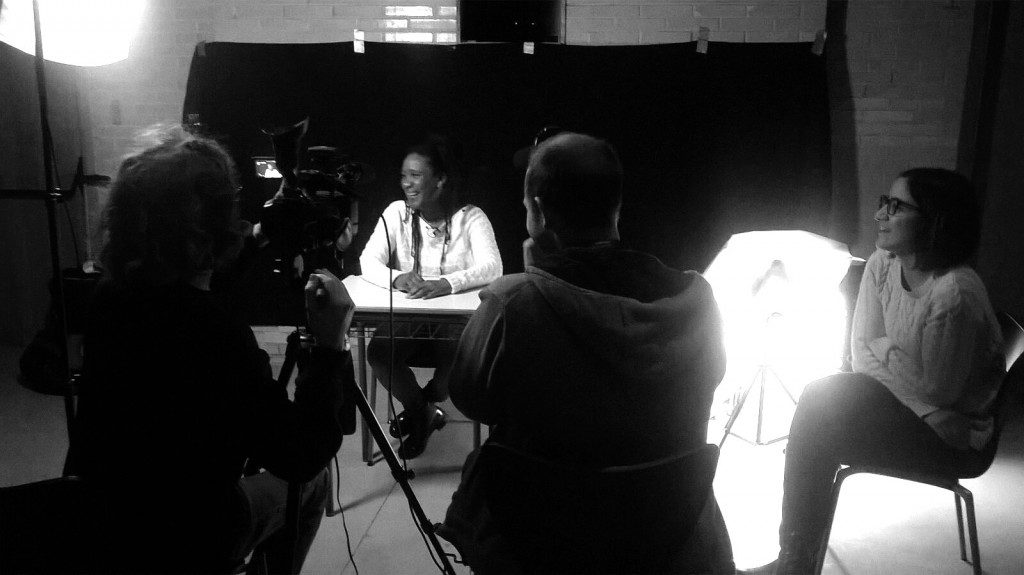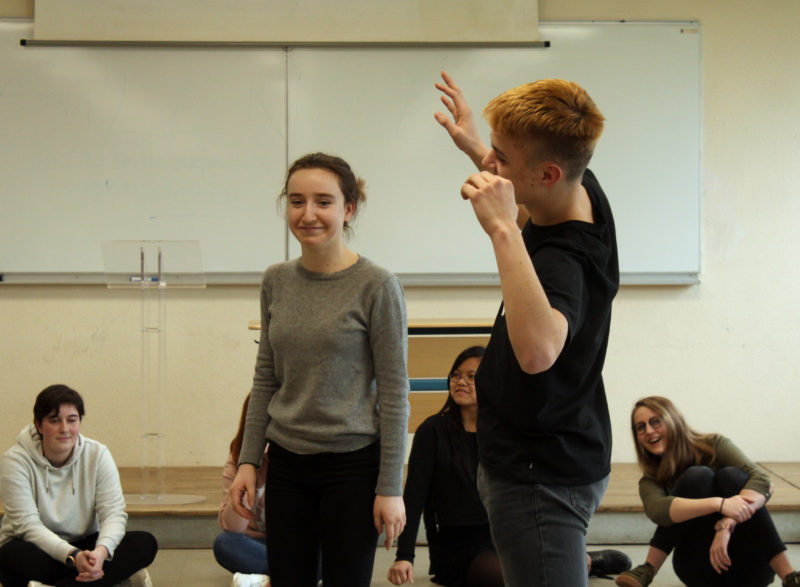18/03/2019
The European Commission distinguishes a project on migrations in which the URV participates
The Encyclopedia of Migrants has collected 400 life stories of migrants in France, Spain, Portugal and Gibraltar through experimentation with art

The Encyclopedia of Migrants has collected 400 life stories of migrants in France, Spain, Portugal and Gibraltar through experimentation with art
The Encyclopedia of Migrants is a project that focuses on the exchange of knowledge about migration in Europe, which has used educational activities and artistic experimentation to fight the social exclusion of immigrants. The project funded by the European Erasmus+ programme and integrated by European entities and universities, such as the URV, has been carried out in Portugal, Spain, France and Gibraltar and it has involved researchers, educators, artists, citizens and social agents. All of them have made possible the compilation and publication of 400 stories of the lives of people who migrated in Europe and they also have made accessible to everyone the methodology that was utilised in the project.
The European Commission has considered the work and results obtained in the project as a success story, a distinction given to those projects that stand out for their impact, their contribution to the elaboration of public policies, their innovative results or creative approach, and that they can be a source of inspiration for other institutions.
More specifically, the The Encyclopedia of Migrants project has allowed to train pedagogues in the development of innovative creative methods that are based on learning through experiences; it has favoured the acquisition of new linguistic, digital and intercultural experiences for migrants, and it has promoted cooperation among researchers, social agents and citizens to carry out new integration projects for migrants.

The project sought to achieve a change in the perception of immigrants and to promote intercultural dialogue. Thus, it contributes to the better understanding of the history of those migrations that have shaped contemporary Europe. Therefore, the final result is a three-volume encyclopedia that contains 400 testimonies of people who contributed by sharing handwritten letters in 74 different languages. Also, a portrait made by a team of 16 photographers is attached to each letter. In addition, the participating researchers, that come from the field of social sciences and humanities, have contributed by including texts about their research. It is published in four languages and it is available in paper edition in several libraries and also in digital format.
The project has been led by the French association of artists L’âge de la Tortue and the participants are: the URV, through the SBRlab research group, which is led by Angel Belzunegui, and the Gijón City Council, from Spain; the Museum of the History of Immigration, the University of Rennes II and the City Hall of Rennes, from France; the Association of International Solidarity, the Renovar a Mouraria Association and the City Council of Lisbon, from Portugal, and the Ministry for Sports, Culture, Heritage and Youth of the United Kingdom.
